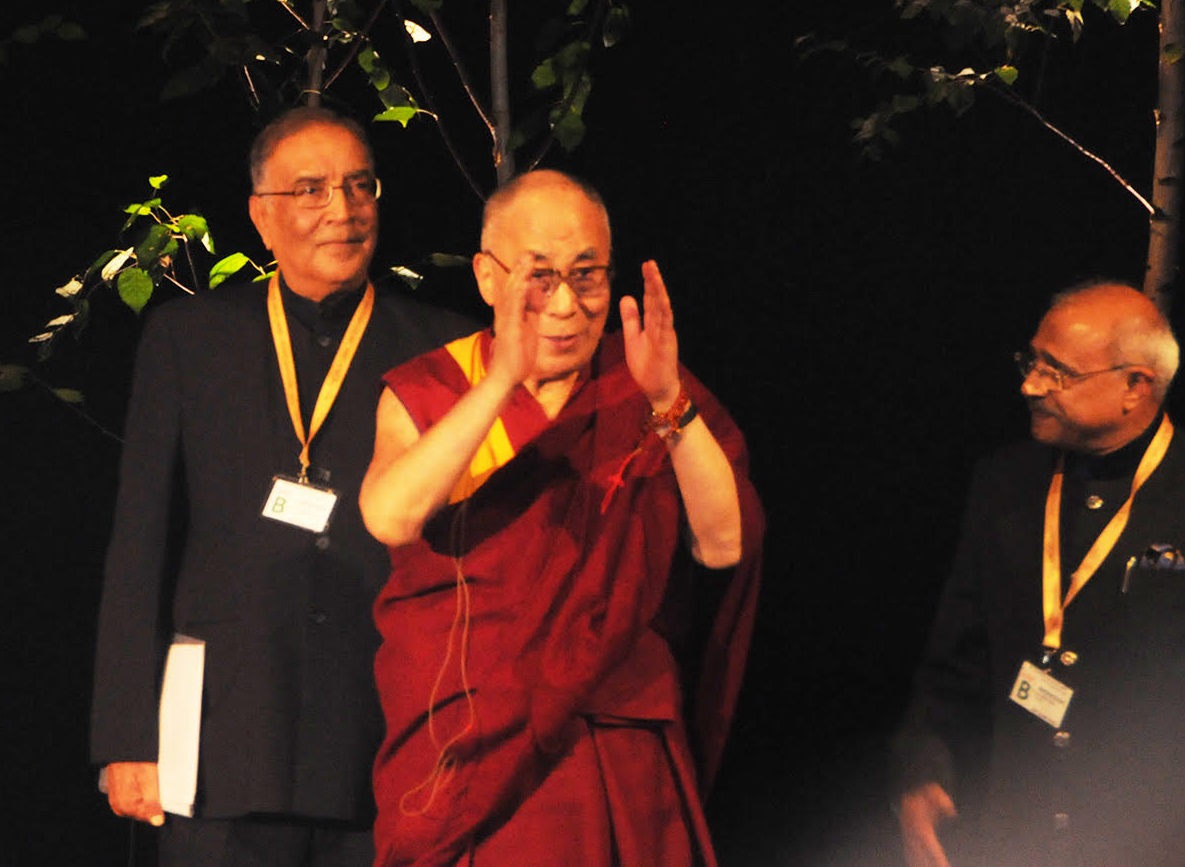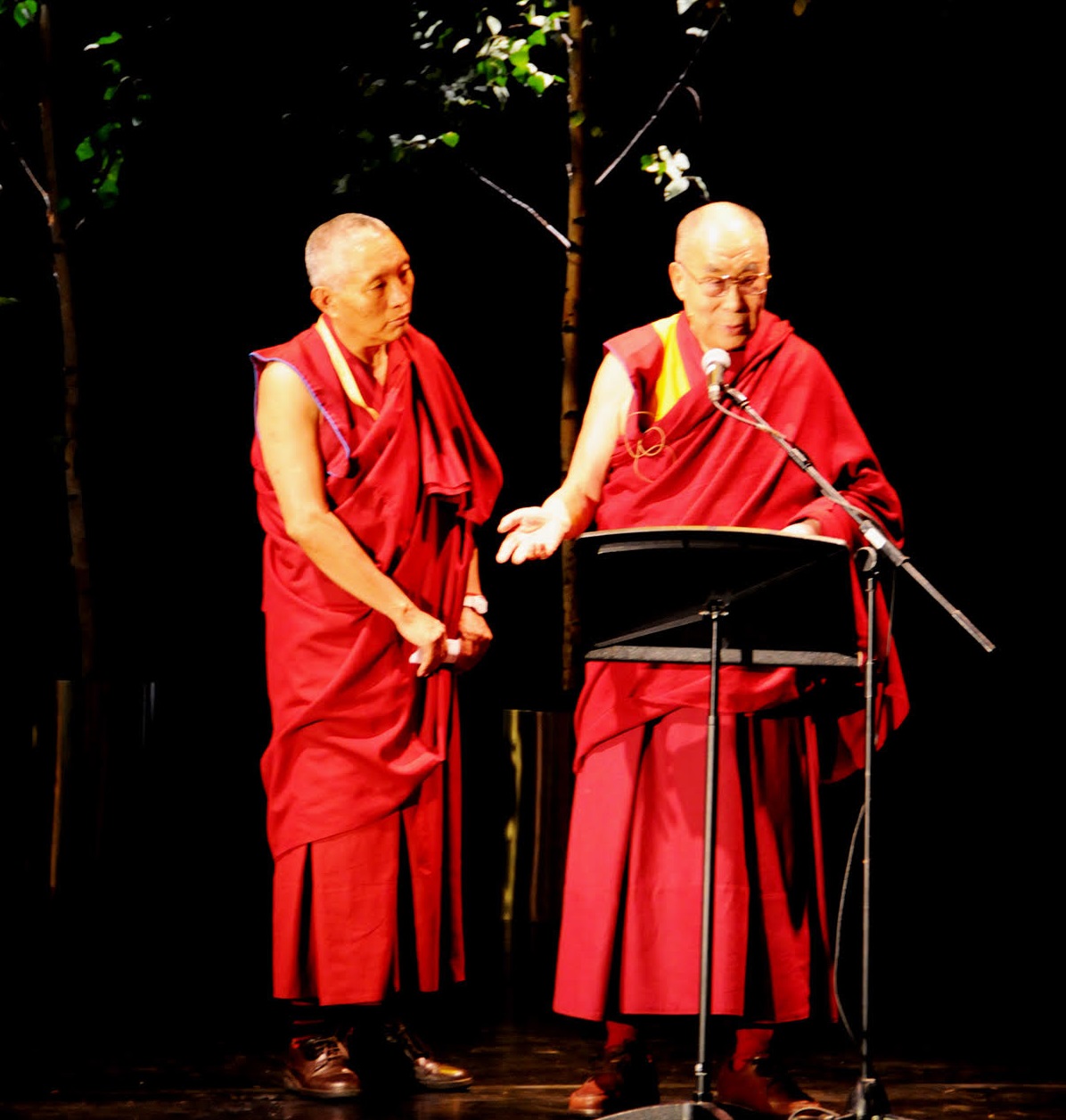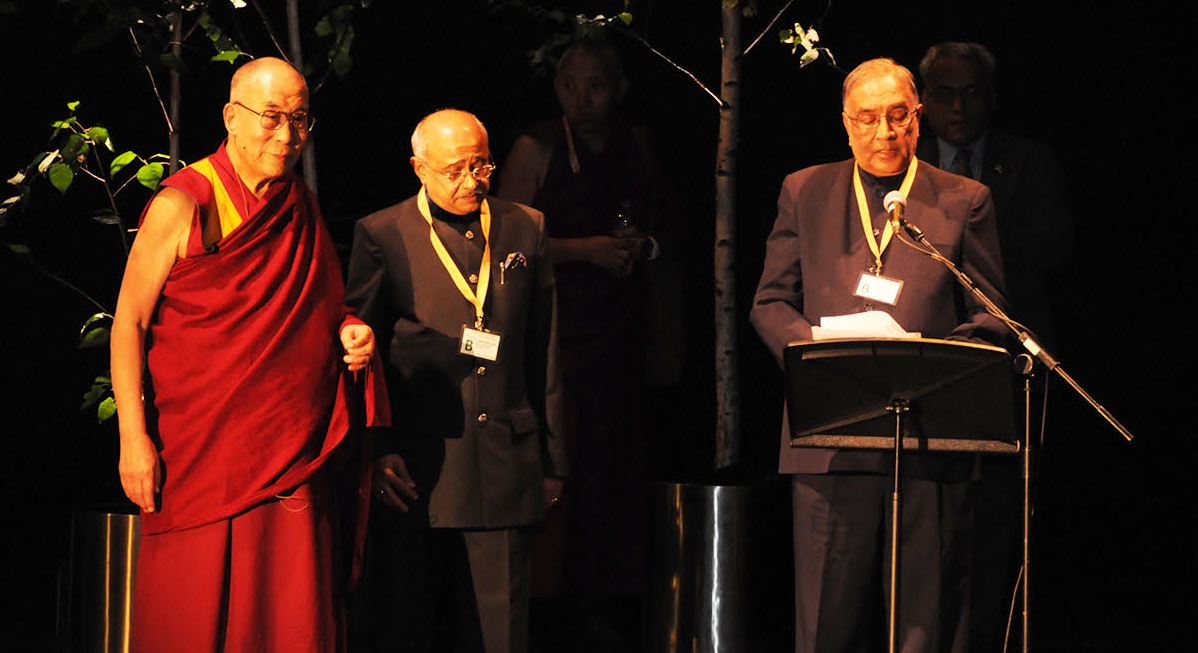
Institute Of Jainology
London, UK
Sunday, September 20th, 2015,
His Holiness the Dalai Lama held a special talk for the Indian community in the London Coliseum on ‘Ahimsa - Indian’s Contribution to the World.’ The event was hosted by Tibet House with the support of Nemu Chandaria OBE, Chairman of the Institute of Jainology and Vinod B Tailor.

H H The Dalai Lama Arriving on Stage
Mr Nemu Chandaria OBE opened the proceedings by welcoming the guests after the arrival of His Holiness on the stage. Mr Vinod Taylor giave a brief introduction to His Holiness
His Holiness said he was honoured to speak to over two thousand people in the Indian community about India’s thousand year old tradition of Ahimsa and promoting non-violence through compassionate action. He spoke of our active responsibility as a community to invite more people into the values of this tradition of Ahimsa and described India as a complicated country but very peaceful society in which different religions can live together in harmony. He said he was honoured to spread the promotion of this message to his Indian brothers and sisters.

H H Addressing the Audience
His Holiness spoke with humility and humour, conveying the very important message of ahimsa, not only in the context of the global geo-social upheavals but importantly, in promoting our internal ahimsa, controlling our inner desires and demons. He emphasised love, compassion and forgiveness as tools for promoting ahimsa.
He stated: India despite its great diversity, maintains a peaceful and harmonious society. Clearly the ancient doctrine of Ahimsa or non-violence, has flourished and has been adopted as a principle of peaceful co-existence by all faiths. This is a tremendous achievement. And one from which other countries can learn.
Over the two millennia, India has given rise to four major world religions: Hinduism, Jainism, Sikism and Buddhism. It has also become home to all of the world’s other major religions. His Holiness considered himself as a messenger of the ideal of Ahimsa. He cites India as an example to the entire world that different religions can coexist in the world without conflict..
He continued: Ahimsa is not just about physical non-violence. It also means non-violence in speech and thought. This principle has a strong bearing on every religion in India. He believes this is something very precious that India can be proud of.
His Holiness reminded the audience that it was Lord Mahavir who opposed the rituals of animal sacrifice 2500 years ago and established the Jain philosophy of Ahimsa in India. This was followed by Lord Buddha a few decades later.
While speaking, he often feels like ‘a son of India’ - he also told the audience that while his brain was filled with Nalanda thought, he was physically filled with daal and chappatis. He went on to say how we need to not only pray but compassionately educate to bring change and to look holistically in the long term.

Nemu Chandaria OBE Giving a Vote of Thanks
The talk formed part of His Holiness the Dalai Lama’s nine day visit to the UK. This was his second major visit to the UK in the year of his 80th birthday bringing together his core commitments - compassion, promoting harmony among different religions and beliefs and preserving Tibet’s peaceful Buddhist culture.
On his arrival at the reception area of London Coliseum, he was presented with the Institute of Jainology’s Coffee Table book celebrating its 25th anniversary. The presentation was made by Dr Harshad Sanghrajka, Deputy Chairman of the Institute and Mr Mahesh Gosrani, Finance Director of the Institute in presence of Nemu Chandaria the Chair of the Institute.